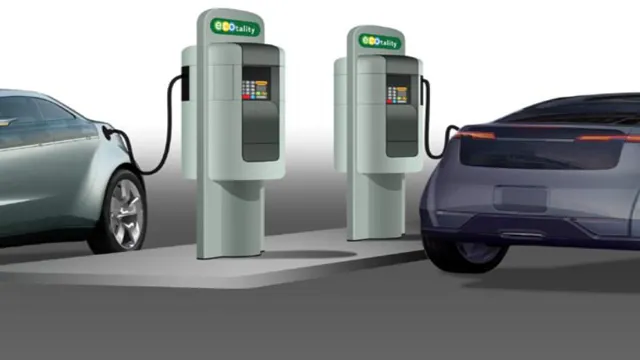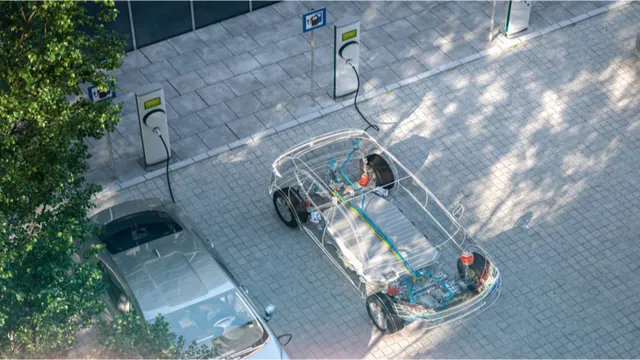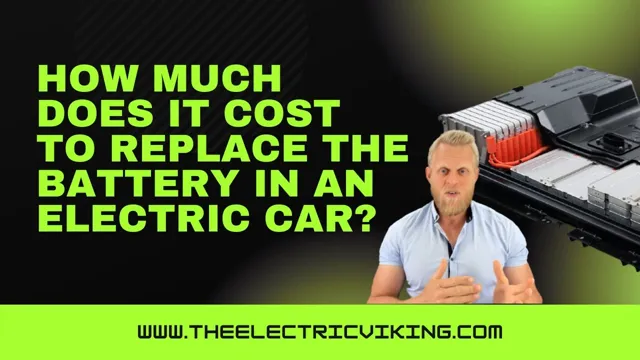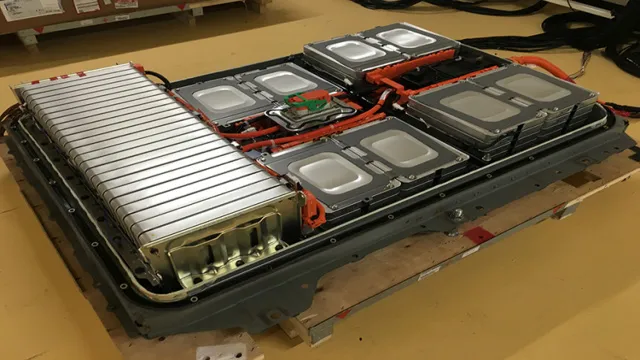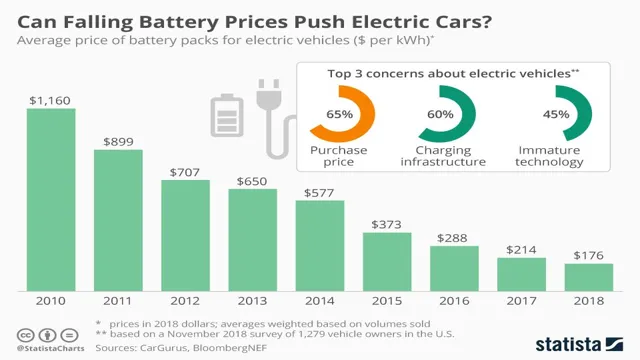Power Up your Drive with Electric Car Battery Charging Stations: A Comprehensive Guide
Do you own an electric car? If so, you know how vital it is to find a reliable electric car battery charging station. Not all charging stations are created equal, and not all of them can charge your car at the same speed or power. That’s why it’s important to do your research and find the best charging stations in your area.
In this blog post, we’ll discuss the importance of electric car charging stations, the different types of stations available, and how to find the right one for your needs. So, buckle up and let’s get started!
The Rise of Electric Cars
Electric cars are becoming increasingly popular with the number of electric car models and the number of electric car battery charging stations increasing every year. The rise of electric cars offers a cleaner and more environmentally friendly form of transportation. As more people switch to electric cars, the demand for charging stations grows.
Rechargeable batteries are a key component of electric cars, and they need to be recharged after a certain period. Charging takes anywhere from a few minutes to several hours, but the development of fast chargers and more efficient batteries means that charging times are getting shorter. It is important that there are enough charging stations in convenient locations around the country to support electric car drivers.
Luckily, the government and private enterprise are working together to ensure that electric car battery charging stations are widely available.
Electric Car Market Statistics
Electric cars are gaining popularity worldwide, and we’re seeing a significant rise in the market demand for electric vehicles (EVs) year after year. With the increasing concerns about climate change, more people are shifting towards sustainable energy and looking for alternatives to traditional gas-powered cars. The electric car market is growing rapidly, and experts predict that the global EV market will reach a value of $80
81 billion by 202 In recent years, many countries have also implemented policies to encourage the adoption of EVs, such as tax incentives and subsidies for electric car buyers. As a result, we’re seeing a surge of electric car sales, especially in Europe, where electric cars account for over 10% of the new car market.
This trend is likely to continue as major automobile manufacturers continue to invest in EV research and development. The future looks bright for the electric car market, and we can expect to see even more growth and innovation in the years to come.
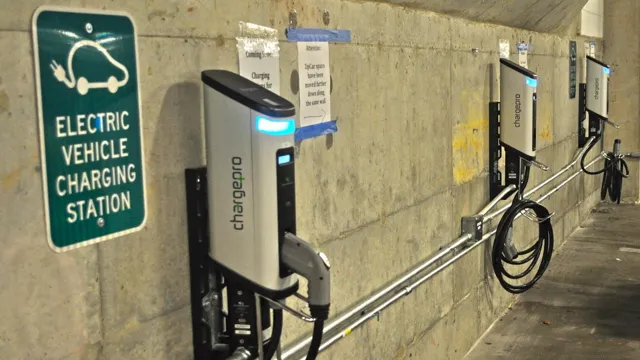
Need for Charging Stations
The rise of electric cars has revolutionized the automobile industry and paved the way for a cleaner and greener future. However, with the increase in electric vehicles on the roads, the need for charging stations has become more pressing than ever. Luckily, governments and companies have taken notice and are now investing heavily in the installation of charging infrastructure.
This move is not only imperative for the successful mass adoption of electric cars but also crucial for reducing carbon emissions and mitigating climate change. In fact, the installation of charging stations is now seen as a primary step towards achieving a sustainable and eco-friendly transportation system. Overall, the rise of electric cars has presented a unique opportunity for individuals, corporations, and governments to work together towards a sustainable future, and the development of charging stations is an essential part of this journey.
Types of Charging Stations
Electric car battery charging stations come in different types, each with its own unique features and advantages. The most common type is Level 2 charging stations, which can deliver up to 240 volts of power to your electric vehicle (EV). These are ideal for home use or workplace charging.
DC Fast Charging stations, on the other hand, can charge an EV up to 80% in as little as 30 minutes, making them perfect for long-road trips and public charging. Wireless charging pads are slowly gaining popularity too, allowing you to charge your EV by simply parking over the charging pad. Finally, solar-powered charging stations are being built using solar panels, reducing the carbon footprint and saving energy costs.
No matter what type of charging station you choose, it’s important to make sure that it’s compatible with your car’s make and model, and that it can provide the required amount of power to charge your car efficiently.
Level 1 Charging
Level 1 charging is the most basic form of charging for electric vehicles. It involves plugging the car into a standard 120-volt electrical outlet, similar to one you’d use for charging a phone or laptop. While this method is the slowest, it is also the most accessible and requires no additional equipment.
However, the charging time for Level 1 charging can take anywhere from 8 to 20 hours depending on the vehicle’s battery size and charging capacity. Level 1 charging is ideal for those who have limited daily driving needs and ample time for their vehicle to charge. It is also convenient for those who live in residential areas where public charging stations are not available.
In summary, Level 1 charging is a convenient option for those with low daily driving needs and who have accessibility to a regular electrical outlet.
Level 2 Charging
Level 2 Charging Level 2 charging is a type of charging station designed for electric vehicles that provides a more powerful charging option than Level 1 charging. Typically, Level 2 charging stations operate at 240 volts and have a charging time of 4-8 hours, depending on the vehicle’s battery size, making them ideal for overnight charging at home. Most public charging stations are Level 2 charging stations, and they are commonly found in parking lots, workplaces, and public areas.
The advantage of Level 2 charging is that it can charge an electric vehicle much faster than Level 1 charging, providing more convenience and flexibility for electric vehicle owners. Level 2 charging stations require professional installation and can be more expensive to operate, but they offer a more efficient and faster option for electric vehicle drivers who want to take advantage of faster charging times.
DC Fast Charging
DC fast charging is a convenient and efficient way to charge electric vehicles quickly. There are different types of charging stations available to EV drivers, each with its own benefits and drawbacks. Level 1 charging stations are the slowest, taking up to 24 hours to fully charge an EV.
Level 2 charging stations are more common and can charge an EV in about 4-6 hours. DC fast charging stations, also known as Level 3 charging stations, are the fastest and most powerful, charging an EV in as little as 30 minutes. However, not all EVs are compatible with DC fast charging, so it’s important to check your vehicle’s specifications before using one.
Despite their faster charging times, DC fast charging stations are not as common as Level 2 charging stations and can be more expensive to use. It’s important for EV drivers to understand the different types of charging stations available and the benefits of each to make informed decisions about where and how to charge their vehicles.
Benefits of Charging Stations
Electric car battery charging stations have numerous benefits for drivers and the environment. Firstly, they provide an efficient and reliable means of charging electric vehicles, saving people the hassle of having to find outlets and wait for their batteries to charge. Charging stations also reduce carbon emissions, as they encourage the use of electric cars over gasoline-powered cars, which produce harmful emissions.
Additionally, charging stations can be placed in public locations, making it convenient for people to charge their cars while running errands or taking a break. This encourages the adoption of electric vehicles and ultimately leads to a decrease in overall carbon footprint. Overall, electric car battery charging stations offer a greener, more sustainable and convenient method of powering vehicles, and their usage should be encouraged to support the transition to a more environmentally-friendly world.
Convenience and Accessibility
Charging stations are cropping up all over the place, and for good reason! With the rise of electric vehicles, the need for convenient and accessible charging options has never been greater. Fortunately, charging stations provide many benefits that make owning an electric vehicle even more attractive. For starters, charging stations allow for easy charging on the go.
Instead of having to rely solely on a home charging station, drivers can spend more time exploring the city without worrying about running out of battery. Additionally, charging stations can be found in many parking lots and other public spaces. This means that drivers can charge their vehicles while running errands or grabbing a bite to eat, making their electric vehicle an even more practical choice.
Overall, the benefits of charging stations are clear, and they are sure to become even more prevalent as electric vehicle usage continues to rise.
Saving on Fuel Costs
If you’re looking to save on fuel costs, investing in charging stations for electric vehicles can be a great solution. Not only will it save you money on gas, but it also provides a more eco-friendly option for transportation. With the increasing popularity of electric cars, the demand for charging stations is on the rise.
By installing a charging station on your property, you can attract new customers as they search for a place to charge their vehicles. Plus, providing this service for your employees can increase job satisfaction and show that your company is forward-thinking and environmentally conscious. Overall, the benefits of charging stations for both personal and professional use are numerous, and it’s a wise investment in the long run.
Future of Charging Stations
As electric cars become more prevalent, the demand for electric car battery charging stations continues to increase. These charging stations provide electric car owners with an easy and convenient way to recharge their vehicles while on the go. Currently, there are several types of charging stations available, ranging from slow charging units that can charge an electric car battery in several hours to fast charging units that can provide a full charge in as little as 30 minutes.
However, the future of electric car battery charging stations looks even more exciting. Manufacturers are currently working on developing wireless charging technology that would allow electric cars to recharge without needing to be plugged in. This technology is expected to become widely available within the next few years, making charging electric cars as easy as parking them in a designated wireless charging spot.
In addition, research is currently being conducted on developing new battery technologies that would allow electric cars to travel farther on a single charge, reducing the need for frequent charging and further advancing the growth of the electric car industry. Overall, the future of electric car battery charging stations looks bright and promising. With continued advancements in technology and infrastructure, electric car owners will have even more convenient ways to recharge their vehicles and help reduce their carbon footprint.
Conclusion
In conclusion, electric car battery charging stations are the lifeblood of the electric vehicle revolution. Just like humans need a good, strong cup of coffee to kickstart our engines in the morning, electric cars need reliable and efficient charging stations to keep them going. So, if you want to play your part in saving the planet and helping to create a sustainable future, ditch the gas guzzler and embrace the electric vehicle, because the future is electric!”
FAQs
What are electric car battery charging stations?
Electric car battery charging stations are locations where electric car owners can charge their car’s battery. These charging stations are equipped with charging equipment that can provide an electric vehicle (EV) with the power it needs to function.
How do electric car battery charging stations work?
Electric car battery charging stations work by supplying electric power to an EV’s battery. The process of charging an EV’s battery at a charging station involves plugging the car into the charger, which then transfers the electric power to the vehicle.
How long does it take to charge an electric car battery?
The time it takes to charge an electric car battery depends on a number of factors, including the type of charger being used, the size of the EV’s battery, and the amount of charge left in the battery. Some charging stations are able to provide a full charge in as little as 30 minutes, while others can take several hours.
Are there different types of electric car battery charging stations?
Yes, there are different types of electric car battery charging stations. Level 1 chargers are basic home charging systems that can fully charge an EV in several hours. Level 2 chargers are faster charging systems that can provide a full charge in 4-6 hours. Level 3 chargers, also known as DC fast chargers, can charge an EV to 80% in 30 minutes or less.
